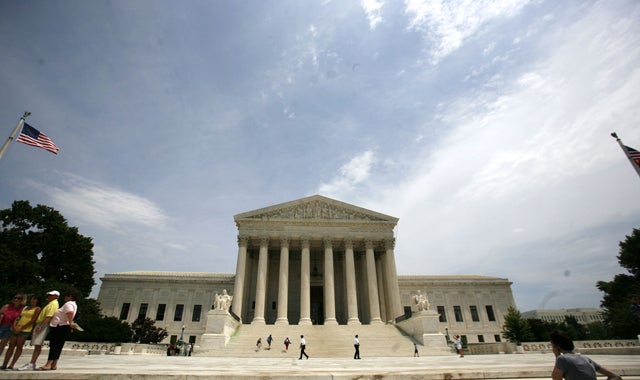Fifty years ago, the Supreme Court handed down a decision that has played a fundamental role in protecting constitutional rights of those accused of crimes.
In Gideon v. Wainwright, the Supreme Court held that under the Sixth Amendment there is a right to counsel in all felony criminal cases, and those who are indigent must be provided counsel by the court. Prior to Gideon, that right was reserved for death penalty cases.
In June 1961, Clarence Gideon was accused of robbing a local pool hall, a felony in the state of Florida. At trial, Gideon, who was indigent, asked the court to appoint counsel for his defense. Under Florida law, counsel was only provided by the state in capital cases, and Gideon’s request was denied. Gideon was forced to act pro se (advocate on his own behalf). A jury found Gideon guilty and sentenced him to five years in prison.
Gideon appealed his denial of counsel all the way up to the United States Supreme Court, writing each appeal himself by hand. The Supreme Court agreed to hear the case and appointed future Supreme Court Justice Abe Fortas to argue for Gideon.
In a unanimous decision, the Court overturned a prior case, Betts v. Brady (1942), which held that counsel was not required for a fair criminal trial in all circumstances. Justice Hugo Black wrote:
Governments, both state and federal, quite properly spend vast sums of money to establish machinery to try defendants accused of crime. Lawyers to prosecute are everywhere deemed essential to protect the public’s interest in an orderly society. Similarly, there are few defendants charged with crime, few indeed, who fail to hire the best lawyers they can get to prepare and present their defenses. That government hires lawyers to prosecute and defendants who have the money hire lawyers to defend are the strongest indications of the widespread belief that lawyers in criminal courts are necessities, not luxuries.
Gideon’s case was remanded for trial, this time with a court-appointed attorney. The jury found Gideon not guilty. It turned out that the state’s chief witness may have been an accomplice to the actual culprit.
Criminal defense attorneys are often portrayed in a negative light because they use “technicalities” to “get criminals off.” First, assumptions of guilt are an anathema to our fundamental notions of justice. And second, people fail to remember that many of those “technicalities” protect fundamental constitutional rights that we all cherish.
The criminal justice system is a maze of laws and proceedings that can be very scary and intimidating for the uninitiated who have been accused of a crime. In order to get a fair trial, it is necessary for everyone who is accused of a serious offense to have the opportunity to be represented by competent counsel.
To deny someone the opportunity to have an advocate to walk him through the criminal justice system and to help him exercise his constitutional rights because he can’t afford an attorney is a grave injustice that Gideon v. Wainwright remedied.
Please join us, online or in person, Tuesday, March 12, at noon for Gideon at 50: Fundamental Right, Ongoing Challenge, co-hosted by The Heritage Foundation’s Edwin Meese III, Ronald Reagan Distinguished Fellow in Public Policy Emeritus and former Attorney General of the United States under President Ronald Reagan, and executive director of the National Association of Criminal Defense Lawyers Norman Reimer.
Our panelists will include Steven D. Benjamin, president of the National Association of Criminal Defense Lawyers; Jim Bethke, executive director of the Texas Indigent Defense Commission; and Rhoda Billings, professor emeritus at Wake Forest University School of Law and former chief justice of the North Carolina Supreme Court.


























